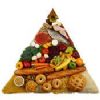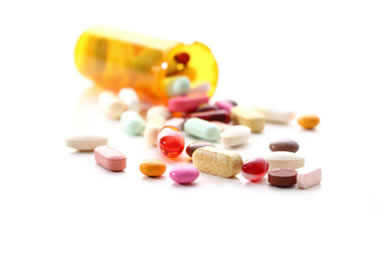|
It's no secret that soda doesn't do the body any favors. According to nutrition information from Harvard, consumption of sugary drinks can increase the risk of obesity, heart disease and diabetes. A 64-ounce fountain cola drink packs a staggering 700 calories—more than most lunches—with no nutritional benefit. And as SparkPeople's registered dietitian Becky Hand points out, even a 12-ounce can of regular soda has 10 teaspoons of added sugar and 150 calories. So why, then, are roughly half of all Americans still consuming sugary beverages (primarily soda) each and every day? We suspect it's for either the taste or the fizz (or both). We get it: When you're thirsty and craving some carbonation, cracking open a can of soda can sometimes seem a lot more appealing than grabbing a bottle of water. But what if there was another beverage option that delivered those satisfying effervescent bubbles, with none of the extra calories, sugar or artificial sweeteners? What's the Appeal of Sparkling Soda Alternatives?Water is always the best source of hydration: It's an essential part of our bodies, has no calories or unhealthy additives and can also help to boost metabolism and weight loss. But for those who just can't or won't drink regular water, the makers of LaCroix and other zero-calorie sparkling water beverages would have you believe that their products are an ideal alternative to soda and other sugar-loaded drinks—and Hand tends to agree. "Sugar-free, calorie-free and flavored with only natural essence oils extracted from natural fruit, LaCroix is also a preferred choice for people who may be wanting to decrease their intake of artificial sweeteners," Hand says. These types of beverages offer the same level of hydration as regular water, with the added appeal of a little flavor and fizz. This makes the drinking process more tasty and enjoyable, which in turn makes it easier to stay hydrated throughout the day. As a health coach, Liza Baker encourages her clients to move closer to whole foods and beverages and away from highly processed ones. In her opinion, LaCroix and other sparkling waters fall somewhere in the middle of the spectrum. "Certainly, it's better for you than cola and other highly sweetened carbonated beverages that are chock full of artificial ingredients," she says, "but on the other hand, 'natural' is not a term that is regulated by the FDA, so claiming that the only two ingredients are carbonated water and 'natural flavoring' does not instill complete confidence." Safely Enjoying Sparkling WaterFor some people, drinking sparkling water can cause some degree of stomach discomfort from the carbonation, especially if it's consumed prior to an intense workout or competitive athletic event. If you're new to that type of beverage, Hand suggests testing your tolerance with smaller amounts consumed slowly, so you can gauge its effect on your body. Another potential drawback of LaCroix and other carbonated water is the potential for dental erosion. As Hand explains, carbon dioxide is what gives carbonated water its desired fizziness. In the mouth, carbon dioxide is turned into carbonic acid, which makes the drink more acidic. Although sparkling water is less acidic than orange juice, soft drinks and sports drinks, it is more acidic than plain water. This level of acidity can potentially cause tooth enamel to wear away. Hand suggests talking to your dentist about your dental wellness plan to prevent erosion. It's also best to consume acidic beverages only at meal time, not as a snack. Saliva flow is higher at meal time, which can help to neutralize the acid. When drinking, never swish or hold acidic drinks in your mouth—instead, sip and swallow or use a straw. Finally, it's best to wait an hour to brush your teeth after having an acidic beverage to give the saliva a chance to neutralize and wash away the acid. Looking for a more convenient and cost-effective way to enjoy sparkling water? Baker recommends purchasing a carbonated beverage maker to make fizzy water at home. If you go this route, you can drink it plain or flavor it with a splash of juice or twist of citrus. If you're cutting back on sugar, start by sweetening to taste using raw honey, maple syrup, agave or sugar, then gradually cut back on the amount added. Do you drink sparkling water or another soda alternative? |
More From SparkPeople |











.jpg)



